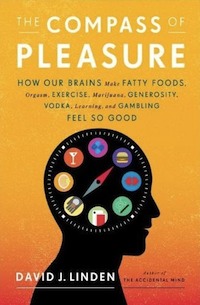Do
animals dream?
While we can’t ask them, the answer is almost certainly yes for mammals and birds. They have REM sleep and they will “act out” complex scenarios that are presumed to be dreams following neurosurgery to disrupt the neural pathway that blocks the commands to muscles during this stage. Whether lower vertebrates like reptiles and amphibians dream is a more difficult question. If they do, it is more likely that they have the short, fragmentary dreams found during early-stage non-REM sleep in humans.
Can
sleeping people still use their senses? Is
it possible to communicate with people when they are asleep?
The external senses are not completely shut down during sleep. For example, sleeping people are much more likely to be awakened by their own name (spoken at a normal volume) than by other names or similar sounds. However, this sensory drive is very limited. In one amazing set of experiments, people managed to fall asleep with their eyes taped open and the experimenter would then sneak into the room and shine a flashlight on certain objects dangled in front of their eyes (a coffeepot, a comb). None of the subjects had any memory of this experience, nor did these illuminated objects appear in their subsequent dream reports, even if they were awakened soon thereafter.
Do
audio recordings for sleep-learning work?
There is no evidence that they do. All indications point to a total rip-off here.
Is
it true that schizophrenics don’t dream and so their dreams “spill over” into
waking life to cause hallucinations?
This theory, put forward in the 1950s has been definitively disproven. Schizophrenics dream and studies of schizophrenics in sleep labs indicate that they have basically normally sleep patterns. While prolonged sleep deprivation can produce hallucinations in anyone, and schizophrenics sometimes will confuse their dreams and waking hallucinations, there is no evidence that impaired dreaming causes schizophrenic hallucinations.
Do
blind people see in their dreams?
People who have been blind since birth or early childhood do not see in their dreams. Rather, they have dreams that are shifted to emphasize other senses that predominate in their waking lives such as sound and touch. People who become blind later in life (after age 7 or so) will continue to see in their dreams. There are cases of people who retain strong visual images in their dreams more than 60 years after becoming blind. What’s really cool is that blind people can sometimes have visual images in their dreams of things or people that they have never seen, only explored with their other senses. Raymond Rainville, a psychologist who has investigated this topic, reports having detailed and consistent images of his children in his dreams even though they were born after he became blind at age 25.





